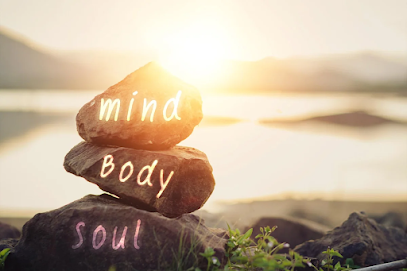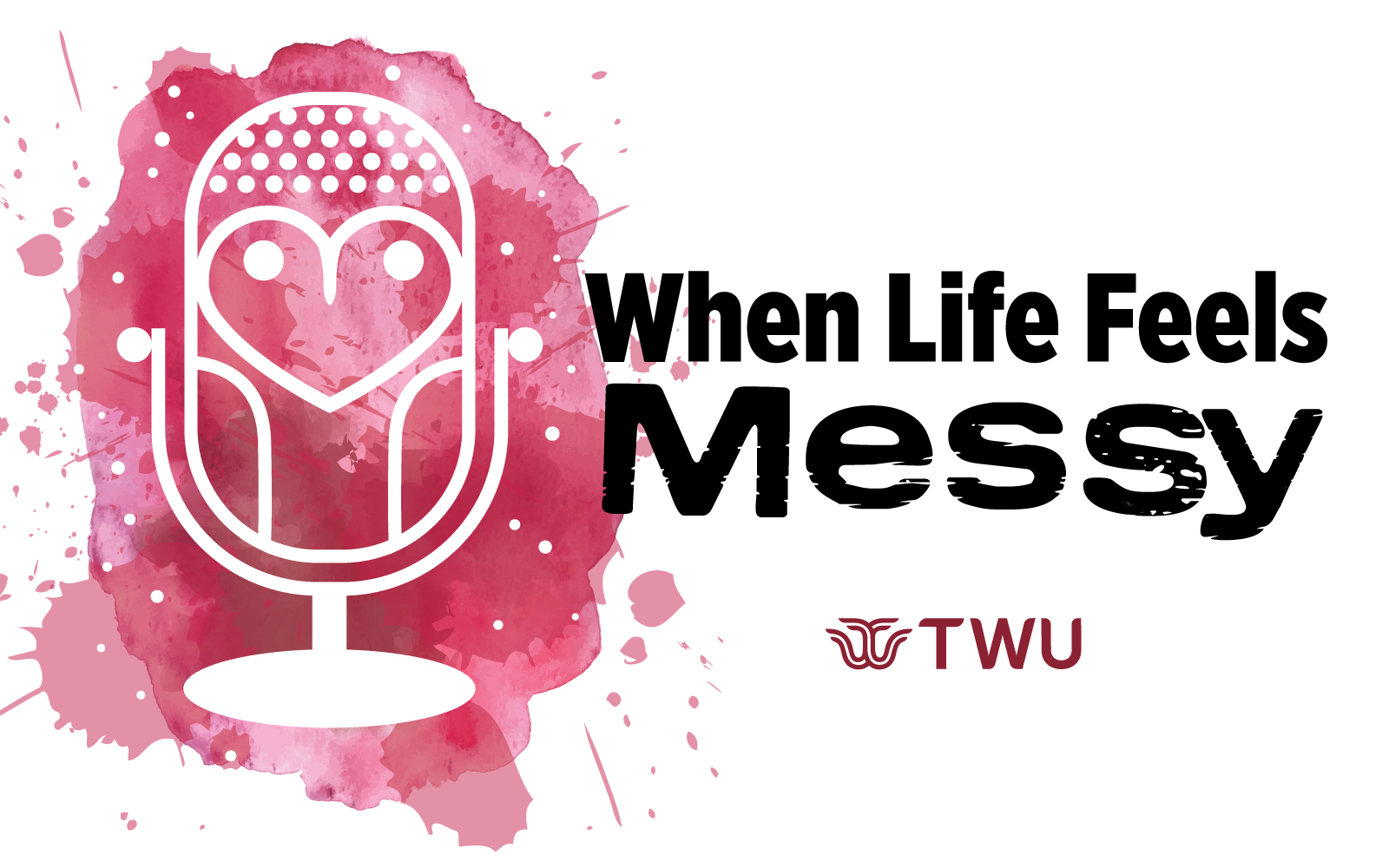
It’s February. The days are still cold and short, and we are in that in-between time when the holidays are over, spring has yet to come, and we are being bombarded by all the Valentine’s Day marketing. Rather than a narrow focus on romantic love, hopefully what you are seeing reflects the growing awareness that loving others well probably shouldn’t just be reserved for February 14th, and also celebrates all the various kinds of relationships that contribute to our wellbeing. So with that broader lens on Valentine’s Day, let’s talk about caring for ourselves well, and how that helps us care for others well.
I’m going to challenge us to shift our thinking about self-care away from much of what the popular media promotes under that label (fancy coffee, manicures, wine night, bubble baths, etc). Instead, think about self-care using a house analogy. In a well built house, you need a firm foundation, strong walls, and a solid roof. Likewise, self-care consists of the actions we take to keep our bodies, minds, and emotions as strong and solid as they can be. The fancy coffees, manicures, wine nights, and bubble baths? Those are fun and promote joy and wellbeing, but I’m going to put those under a different category: self-soothing. Self-soothing also contributes to wellbeing but in a different way. Those actions don’t necessarily shore up your home’s structural components. Instead, they are the comfy couch, cute decor, and popping paint colors you choose to live with because they please your senses and make your life more enjoyable. They can comfort you on a bad day temporarily, but won’t do you much good over the long haul.
Here’s a thought exercise for you: If you could guess that you were about to have a terrible series of days ahead, what would you want to do to best position yourself to take on that challenge? This is a very personal question, and not one that TikTok influencers or I are going to be able to prescribe for you. And often, it’s not going to look fun, escapist, sexy, or exciting, either. (Tip: If it’s fun, escapist, sexy, or exciting, it’s probably self-soothing.) The concrete slab, two by fours, and roof aren’t glamorous. They are practical and boring, but without them, that comfy couch crashes through your floor and your decor is ruined by the weather.
While what is structurally required for you to be at your best is going to be unique to you, there are some general categories to consider. These vary person to person, but are likely to include physical health, mental health, relationships, financial security, and a connection to something larger than yourself. Something larger than yourself can certainly be your religious or spiritual faith, but can also be feeling connected to nature, humanity, or the greater good of the planet.
I’ll use myself as an example. For me, if I knew hard times were ahead, I would want to first be well rested. If I’m tired, I’m never at my best no matter what with the other things- this is my foundation. I have two physical body related walls. One of my walls is to feel capable and strong in my body, not lethargic or sedentary. With this wall, movement on a regular basis is key. Another body wall is to feel physically comfortable. I’m no longer wearing high heels or too tight pants. I quit working out so much I’m always sore, and very rarely get to the point of being too hungry, too thirsty, over-caffeinated, sugar crashing, or hung over at this point in my life. My third wall is knowing that I have my people in my corner and I can rely on them for help. The last wall I call “my reserves.” My reserves means I have not regularly over-extended my spending, physical or emotional energy, or brain space on things that don’t contribute to my long term wellbeing. I have extra to fall back on, I trust in myself that I will protect that safety net, and feel confident it will be available when I need it. My roof is my spirituality, which helps me keep in perspective on how my problems matter, but how I am also part of a larger, loving, meaningful universal process so I feel less alone on my worst days.
You can see how self-care behaviors naturally fall out of these categories. For example, I’m going to try to get 7-8 hours of sleep a night; strive to balance my sugar and caffeine intake with protein, veggies, fruits, and water; incorporate movement regularly that helps me feel strong; donate clothes that don’t serve me; and spend quality time with my loved ones. If one of my core relationships starts feeling off, I’m going to try to talk with my person proactively to shore it up again. I’m also going to monitor my spending and limit my exposure to the news and social media when they are bringing me down. I’m going to as kindly as possible let go of relationships that are no longer contributing to my well being and not responding to my efforts to fix them. I’m going to spend time in nature to feel connected to the larger universe and be open to experiencing awe, an emotion that always fills me with gratitude and security in this unpredictable world.
Ultimately, self-care is about being your own best friend, parent, and protector. You are in charge of the maintenance and repair work on your house so that you have a safe, secure, and stable place for yourself to live and share with others. As part of this, you may need to ask for help, just as you would if you needed a roof leak repaired and you were not a roofer by trade. Regular doctor and dentist visits, finding a therapist, or hiring a workout trainer may be actions you take to keep your house in order.
Now, an important caveat. We can’t address self-care without acknowledging the role that privilege and oppression play in our ability or lack of ability to build a strong house. The location, family, race/ethnicity, gender, body, and financial resources you were born into; the opportunities or lack thereof that have been available to you; what kind of things you were taught about how to care for yourself; and so much more may make your home easier or harder to build. For example, as a woman, I’ve been raised in a culture that sends me messages all the time that I need to ignore my house and instead focus on helping others build theirs. And if I’m going to pay any attention to my house, that attention had better revolve around keeping myself young, attractive, and pleasing to others (e.g., 14 step skin care routines, dying my gray hair, and reinforcing these kinds of activities in the other women in my life). As a mother, this message is totally doubled down on by society. But you know what? When my house is solid and built on self-care and not self-soothing, guess who lives in it more comfortably? Not just me- also my kids and loved ones. I have more to give them, financially, physically, and emotionally when I’ve taken care of my house. My hope is also that by trying to role model this, my kids will learn that it’s important and okay for them to build their house well, too.
The good news is that there are many free resources available to you to help you build your house, even if you are strapped for cash, support, and uncertain where to start. I’ve linked some of those at the end of this blog post. :-)
As you consider where to start, I encourage you to start small in one area and give yourself a lot of grace. Building a house takes time. Mistakes are made and then corrected. An extra room is added later to adjust to new circumstances. And if you go back and read the examples from my own life above, I hope you will notice that nowhere in there do I say that I do any of it perfectly, all the time, no matter what. Self-care is also about being flexible, learning from your mistakes, and regaining balance when the huge box of dark chocolate covered caramels with sea salt convinces you that you need to eat all of it and you find yourself loading up your Amazon cart.
You are human, building the best house you can with what you’ve got. Ask for help. Be kind to yourself. And save for the cute comfy couch.
-Dr. Linda Louden, Licensed Pyschologist
Free resources: Remember your local library! For free, you can download, listen to, or borrow paper copies of books and magazines on most any topic.
Physical health
Mental health
Currently enrolled TWU students: https://twu.edu/counseling/
https://psychcentral.com/blog/top-10-free-mental-health-apps
Financial education
Relationships
https://therelationshipinstitute.org/resources-marriage-counseling-information/
https://parade.com/1204851/kaitlin-vogel/how-to-make-friends/
Religion and Spirituality
Google “places of worship near me”
Google “national and state parks near me”
Google “volunteer opportunities near me”

Comments
Post a Comment